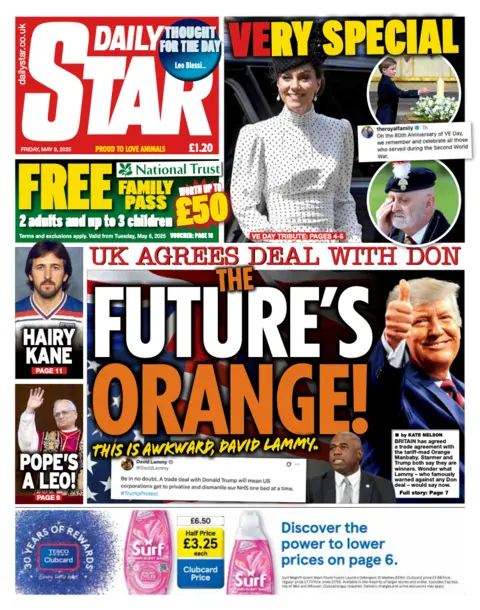UK Strikes Landmark US Trade Deal, Boosting Car & Steel Exports – But Tariffs Remain

In a significant development for UK-US trade relations, Labour leader Keir Starmer has overseen the securing of a new trade deal with the United States, hailed by some as a direct consequence of Brexit. The Financial Times reported the news, highlighting the deal's potential to invigorate key sectors of the British economy.
The agreement, described as the first major US trade deal since the tumultuous era of Donald Trump's presidency, promises crucial concessions for UK exporters of cars and steel. This is a welcome boost for industries that have faced challenges in recent years due to shifting global trade dynamics and the complexities of post-Brexit arrangements.
However, the deal isn't without its limitations. Despite negotiations, the UK has been unable to secure a reversal of the existing 10% levy imposed on most goods entering the US market. This tariff remains a point of contention and could hinder the full potential of the trade agreement. Experts suggest that further negotiations will be necessary to address this issue and unlock even greater benefits for UK businesses.
Brexit's Influence: The deal's emergence is widely seen as a direct result of the UK's departure from the European Union. Leaving the EU allowed the UK to forge its own trade agreements, and this deal with the US represents a tangible example of the opportunities Brexit has presented. While the impact of Brexit remains a subject of ongoing debate, this agreement demonstrates the UK's ability to independently pursue its trade interests.
Impact on Industries: The concessions on car and steel exports are particularly significant. The automotive industry, a major employer in the UK, has been grappling with uncertainty in recent years. This deal offers a much-needed lifeline, providing access to the vast US market. Similarly, the steel industry, which has faced challenges due to global competition, will benefit from increased export opportunities.
Future Prospects: While the 10% tariff remains a hurdle, the deal sets a positive precedent for future trade negotiations between the UK and the US. Both countries have expressed a commitment to strengthening their economic ties, and this agreement is a crucial first step. Further discussions are expected to focus on reducing or eliminating these tariffs, paving the way for an even more comprehensive trade relationship.
Keir Starmer's role in securing this deal has been met with cautious optimism. While acknowledging the limitations, many see it as a positive sign of his leadership and a step towards a more prosperous future for the UK economy. The long-term impact of this trade agreement will depend on its implementation and the ongoing efforts to address the remaining trade barriers.





